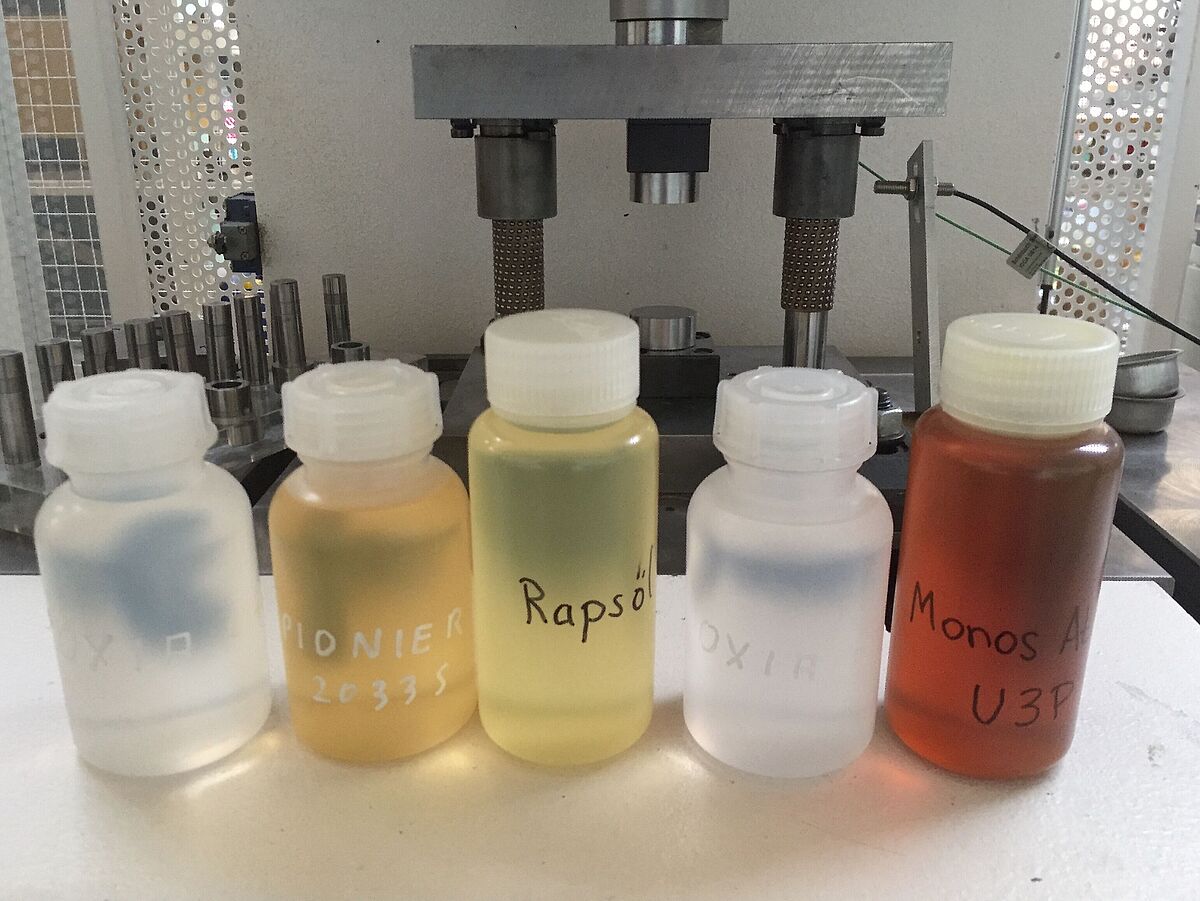The aim of the "ALBINA" project is to substitute mineral oil-based lubricant additives with components from algae. In the project, function-oriented components from algae are to be identified, and their potential for use as lubricant additives is proven and applied. The opportunities of this approach are: lubricant application reduced by mineral oil, significant resource conservation and avoidance of the tank-dish conflict. In the sub-project P4 "Performance testing in metal forming", the technical requirements and the performance of the additives to be developed are determined, evaluated and described in two steps at Wismar University of Applied Sciences. The first step is carried out on laboratory-scale testing machines; in the second step, machine tools at Wismar University of Applied Sciences are used for tests in sheet metal and solid forming applications.
The project looks at the development chain starting with the selection and cultivation of algae, their extraction, chemical structure analysis and ecotoxicological properties. In addition, the properties of the new additives will be investigated in cutting and forming production processes.
An industry working group with representatives of the lubricant industry, algae manufacturers and other interested parties is associated with the project. Through intensive networking with all partners, it should be possible to lay the foundation for a first product suitable for industrial use by the end of the project.
In addition, two associated partners are involved in the analysis of nanoparticles and the microbiological analysis of the additives obtained:
- TecMic, Bremen
- BUI, Bremen


